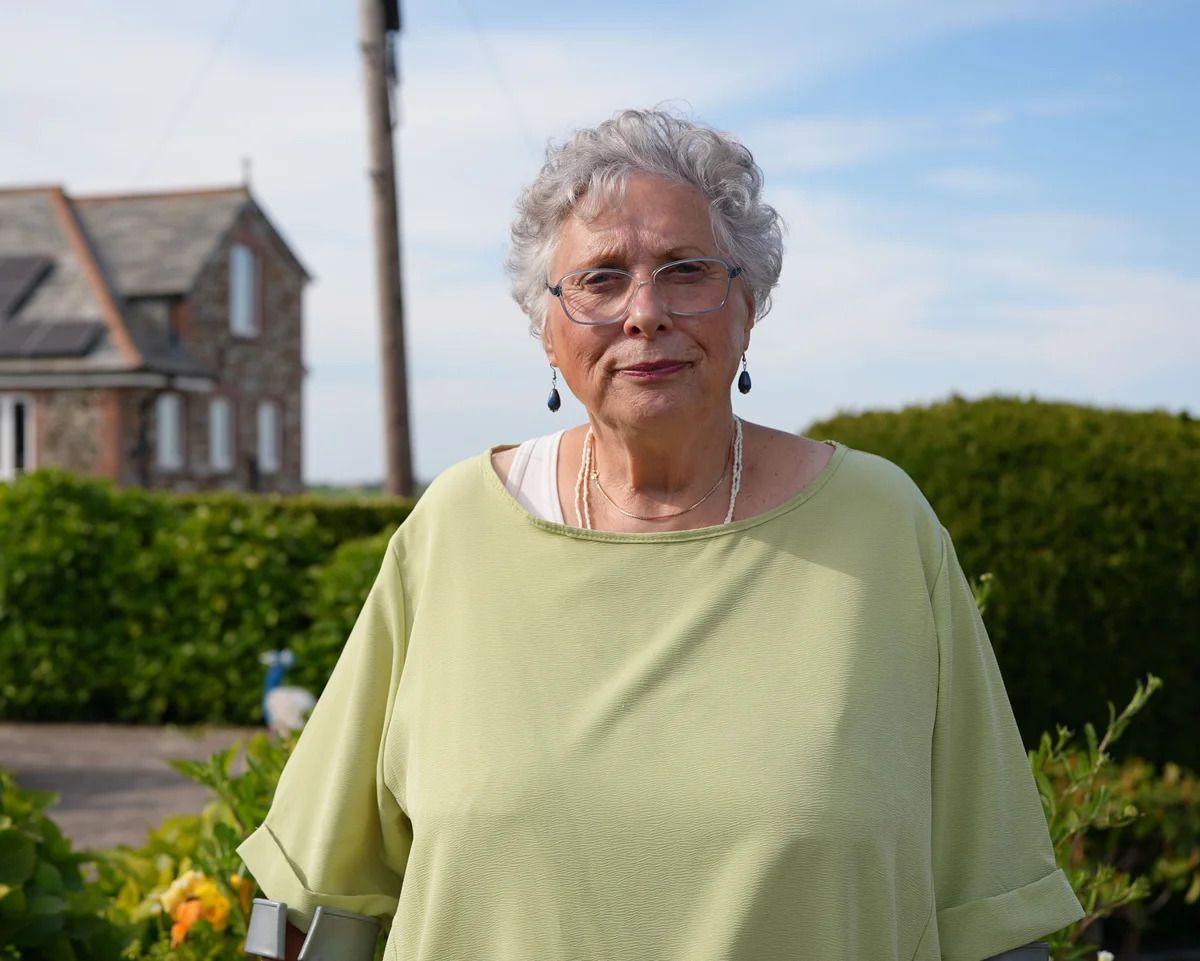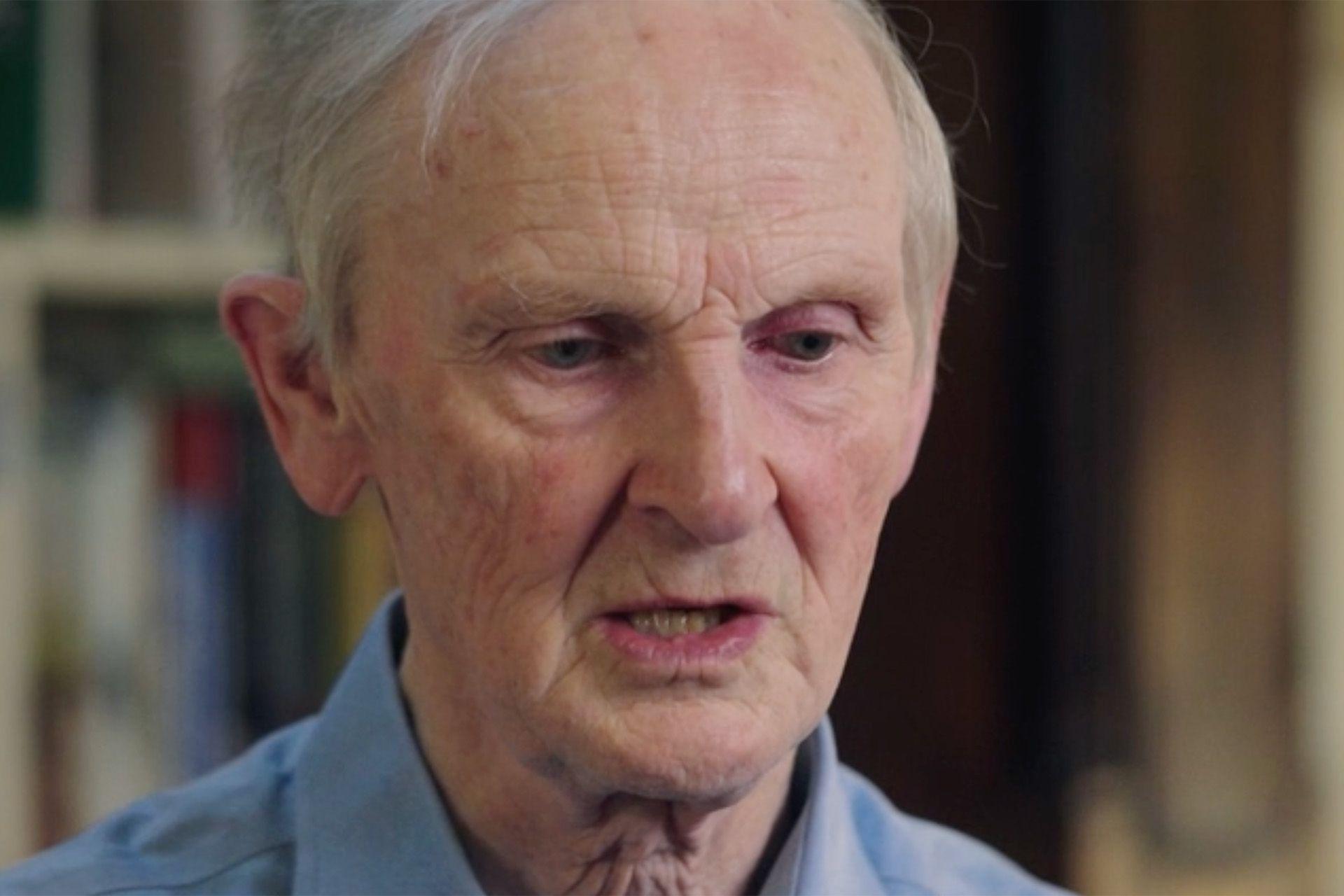Camelford water poisoning incident: 'I want the truth to come out'

St Minver resident Carole Wyatt believes there has been a miscarriage of justice following the accidental poisoning of her water supply
- Published
Thirty seven years after the biggest mass poisoning in British history, a new documentary follows victims in Cornwall still looking for justice.
On July 6 1988, 20 tonnes of aluminium sulphate was accidentally dumped into the incorrect tank at the Lowermoor Water Treatment Work in north Cornwall.
Advice at the time was to boil the water. This was later described at an inquest as the "worst possible" advice by professor of bioinorganic chemistry Chris Exley because it would have tripled the aluminium concentration in the water.
St Minver resident Carole Wyatt calls the lack of a full inquiry subsequently a "miscarriage of justice" in Poison Water, a new BBC documentary on what has become known as the Camelford water poisoning incident, adding: "I want the truth to come out."
Nearby residents soon began noticing health problems, such as vomiting, rashes and ulcers. Carole Cross, from Camelford, died in 2004 from a rare form of dementia, with postmortem tests showing a heightened amount of aluminium in her brain. The inquest, however, was not able to conclude this as the cause of her death.
Though the South West Water Authority was fined £10,000 in a 1991 trial, and 148 victims received out-of-court settlements ranging from £680 to £10,000, some are still looking for justice nearly four decades later.
Hannah Lowes, who directed Poison Water, says she hopes that the documentary will bring more attention to the incident, adding that residents "just want people to be talking about it again and to make sure it doesn't happen again".
'They didn't want to rock the boat'

Paul Tyler thinks more should have been done to monitor the long-term health of those affected by the poisoning
Paul Tyler was the MP for North Cornwall between 1992 and 2005. In 1994, he brought up the issue during a Parliament debate, and felt his concerns about his constituents and his requests that their long-term health were monitored were "brushed aside" by then Minister of State at the Department of Health Brian Mawhinney (who died in 2019).
Though the incident happened just before the South West Water Authority was privatised in 1989, Tyler feels the Conservative government avoided looking into the incident fully to prevent public criticism of the government's policy of privatizing public utilities.
"Privatisation was still relatively young," he says. "They didn't want to rock the boat."
Read more
Inquiry calls over mass water poisoning
- Published6 July 2018
Water firm 'gambled with lives'
- Published14 March 2012
Water poisoning cover up denied
- Published3 November 2010
In Poison Water, we see a letter sent to then-Minister for Water Michael Howard citing the opinion of members of the South West Water Authority Board, warning that the financial sector may be discouraged to invest in the privatised water companies if an investigation into Camelford led to any employees of the water authority being prosecuted (in the documentary, Howard says he does not recall receiving the letter).
Only one senior executive was fired for the incident, while the company's chief executive had his salary doubled shortly after privatisation – a situation Tyler calls "absurd".
The South West Water Authority was replaced by a new company called South West Water following privatisation in 1989. In a statement, a spokesperson for South West Water said: "Camelford was a tragic incident that took place before South West Water was founded… in a completely different regulatory era.
"Today, water quality is overseen by strict independent regulators with modern safeguards and rigorous monitoring."
'Better regulation'
The biggest mass poisoning in British history
Tyler sees a direct line from the Camelford incident "not being properly monitored" to recent controversies around water companies dumping raw sewage into rivers.
"The whole industry should have been subjected to far better regulation," he says, adding that he feels the investment and improvement promised by privatisation has not fully materialised.
"The only people who've done very nicely out of privatisation are the shareholders and the directors," says Tyler. "If you're the people who suffered at the hands of a particular water company, would you not feel that was absolutely outrageous?"
In Poison Water, Howard defends his government's stance on privatisation: "It subjected [companies] to the discipline of competition, and competition helps make companies in any sector more efficient and helps to give consumers better value for money."
In 2013, Health Minister Anna Soubry and Environment Minister Richard Benyon wrote a letter apologising on behalf of the government for the incident.
When asked what justice would look like for him nearly 40 years after the incident, Tyler says: "An admission there was a cover up that damaged the area and the long-term health of individuals would help. But after 37 years, it's frankly impossible for full justice to be given."
You can watch Poison Water on BBC iPlayer now